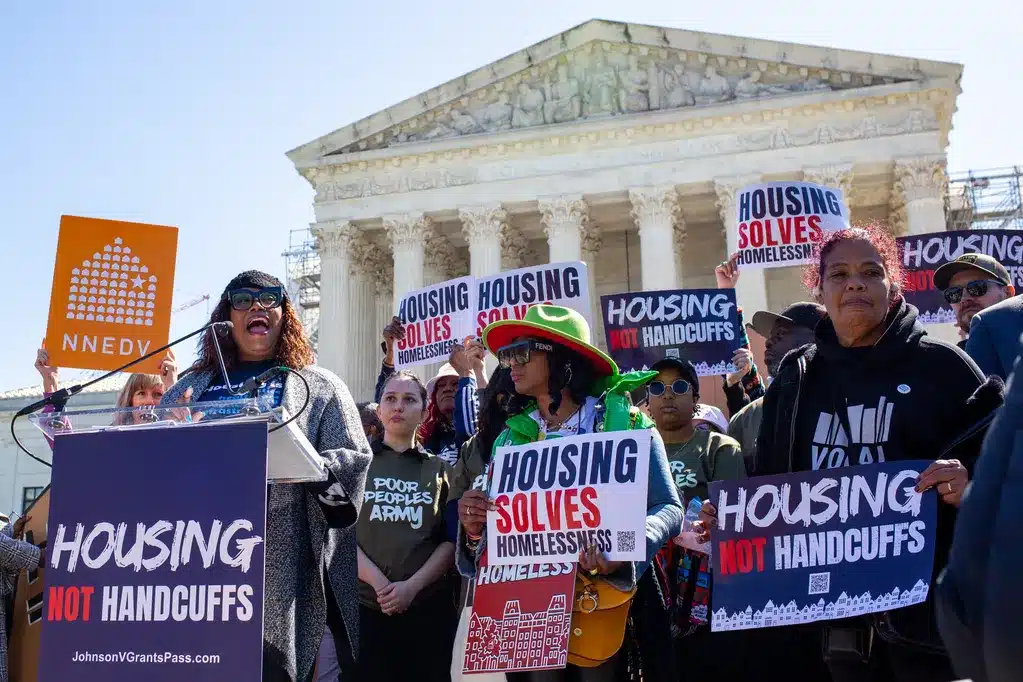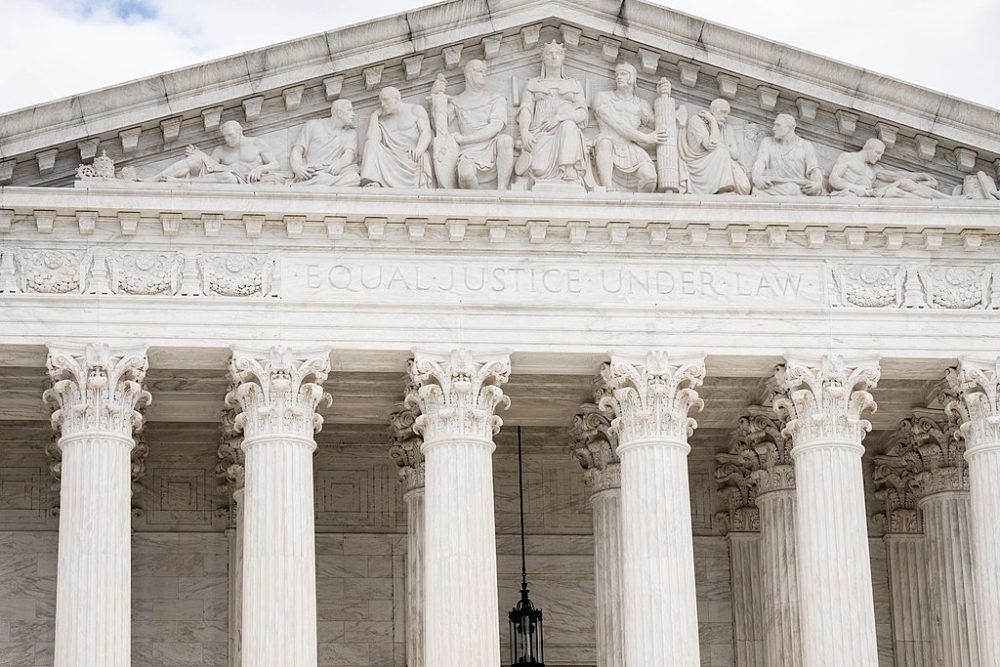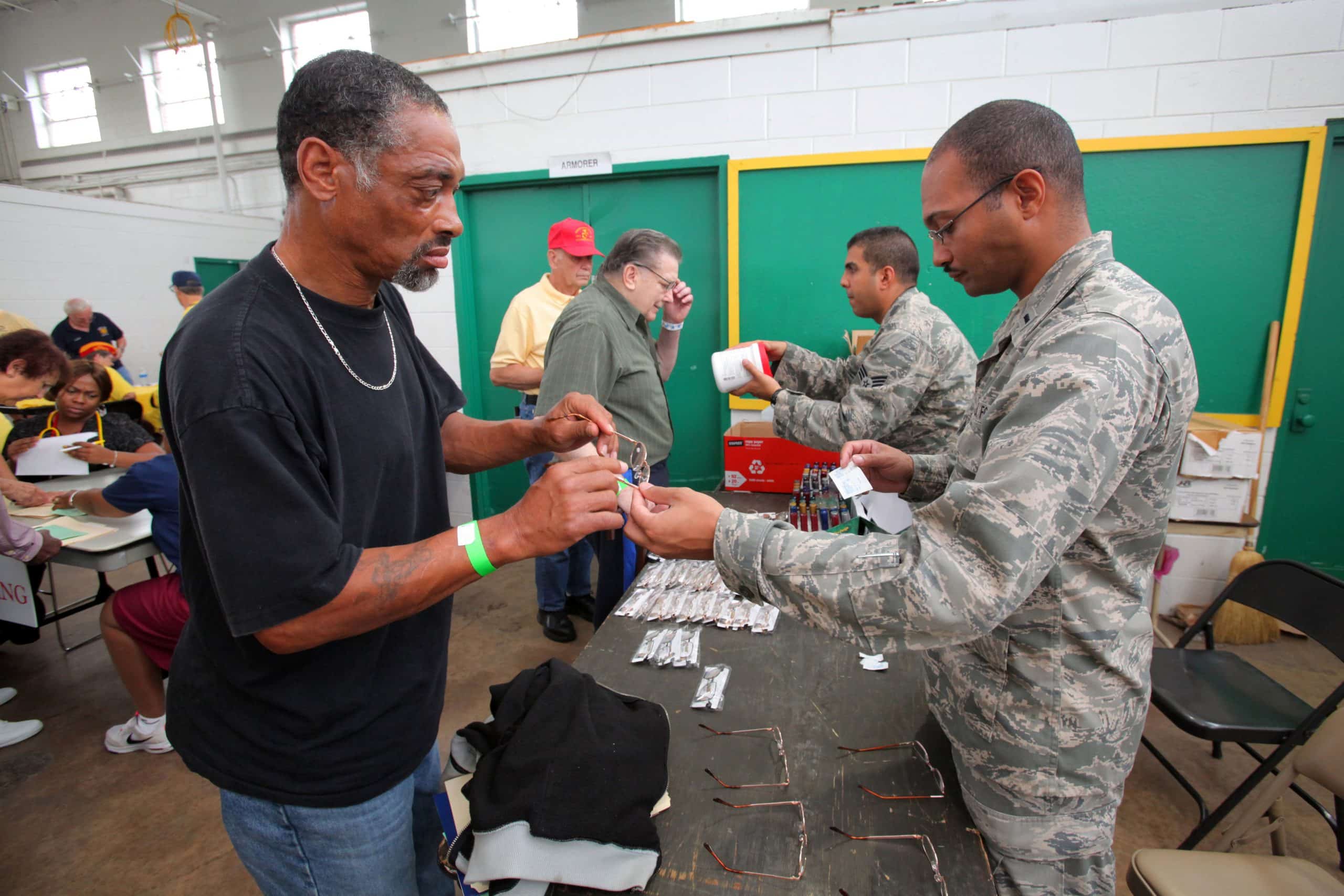|
Getting your Trinity Audio player ready...
|
This week, the U.S. Supreme Court heard arguments in Grants Pass v. Johnson, a watershed moment for homeless rights. The highest court in America will decide whether cities can punish their residents for sleeping outside with a pillow or blanket, even when no safe shelter options exist. More specifically, the court will determine whether these bans violate Eighth Amendment protections against excessive bail, fines, and cruel and unusual punishments.
With more than 650,000 people in America experiencing homelessness in one night—and a quarter of a million of them unsheltered—this case will have a massive impact. And while Grants Pass, Oregon, has a relatively small population, underlying reasons for homelessness in the city mirror a nationwide issue. Homelessness is growing at an alarming rate, not because cities lack ways to punish people for being poor, but because a growing number of Americans struggle to make ends meet, including paying for housing.
Research from the Harvard Joint Center for Housing Studies confirms that unaffordable housing is the primary driver of growing homelessness. Such is the case in Grants Pass, where the vacancy rate is nearly zero, driving up the cost of the few housing options available. Compounding the problem, Grants Pass does not have any safe, accessible shelter beds to accommodate its unhoused population.
Faced with this shelter shortage, many Grants Pass residents turn to their only remaining option: the outdoors. To address the rise in homeless individuals sleeping on the city’s public property, Grants Pass passed a series of anti-camping ordinances in 2013 that imposed strict financial penalties, and even jail time, on those caught violating the new laws. In other words, the city addressed its homeless problem not by solving it but by punishing people.

Because Grants Pass has no adequate homeless shelter that can serve as an alternative to the streets, the plaintiffs argued that punishing those with no place to go is “cruel and unusual,” violating the Eighth Amendment.
In previous rulings on this and related cases, the courts have agreed. In 2018, the U.S. Court of Appeals for the 9th Circuit ruled in Martin v. Boise that cities cannot enforce anti-camping ordinances without providing adequate shelter beds for their homeless populations. And in a 2022 ruling in the Grants Pass case, the same court sided with the plaintiffs, writing:
“We affirm the district court’s ruling that the City of Grants Pass cannot, consistent with the Eighth Amendment, enforce its anti-camping ordinances against homeless persons for the mere act of sleeping outside with rudimentary protection from the elements, or for sleeping in their car at night, when there is no other place in the City for them to go.”
Now, after the city lost in the district and appeals courts, the Supreme Court will hear Grants Pass’s final appeal and make a final decision.
It should not be controversial to say that arresting or ticketing people who have no choice but to sleep outside is cruel and unusual punishment. My organization, the National Homelessness Law Center, recently released survey findings with the Housing Narrative Lab recently on the state of public opinion surrounding the case and related attempts to arrest, fine, and ticket people who experience unsheltered homelessness. The study, conducted by Lake Research Partners, encompassed 1,302 adults across the country. It found that most people connect the high costs of housing with homelessness and 72 percent reject jailing, ticketing, and fining people for sleeping outside if there’s no shelter available. Almost three out of five people have been homeless or know someone who has experienced homelessness.
If the Court rules against Grants Pass, cities will be prevented from punishing people for sleeping outside when they have nowhere else to safely sleep. That’s one reason many other cities are keenly following this case or weighing in with their own briefs supporting Grants Pass, as San Francisco, Los Angeles, and Phoenix have already done. Those three cities (and surrounding areas) alone represent a homeless population of more than 88,500.
If the Court rules in favor of Grants Pass, striking down the 9th Circuit opinion, it will do nothing to end or alleviate homelessness. Instead, it will allow cities off the hook, permitting them to punish people for existing in public places even when the cities have failed to ensure that everyone has a safe place to sleep. This will make homelessness worse.
Last month, Florida joined more than a dozen other states to introduce laws that ban sleeping outside. Shortly after, Kentucky’s legislature passed a bill that enables property owners to use deadly force against unhoused people on their property without facing criminal consequences.
These practices, which punish the most vulnerable for their lack of shelter, are now in the spotlight. Those siding with Grants Pass would have you believe that nothing can be done, or that solving the problem is too hard or too expensive to be within reach. This could result in a race to the bottom, with municipalities across the country choosing to combat homeless people rather than homelessness.
But the cities that have attempted to tackle this issue in a meaningful way show that progress is indeed possible. In Miami, for example, which was under a federal ruling for more than two decades prohibiting the use of jail cells and fines as a response to homelessness, the county funded housing and services. It reduced homelessness by 90 percent.
Milwaukee County implemented a housing-first program nearly a decade ago, which resulted in a 92 percent decrease in its homeless population.
And Houston, the fourth-most populous city in the nation, provided more than 25,000 homeless people with apartments and houses between 2011 and 2022, reducing homelessness by 64 percent. We cannot simply continue to turn to the justice system to solve social services problems. Doing so is not only relying on the wrong tool for the job, but it violates one of our most fundamental rights as Americans. The solution to homelessness is safe, decent, and affordable housing for everybody and we must ensure that all our neighbors have the housing they need to thrive.




Comments